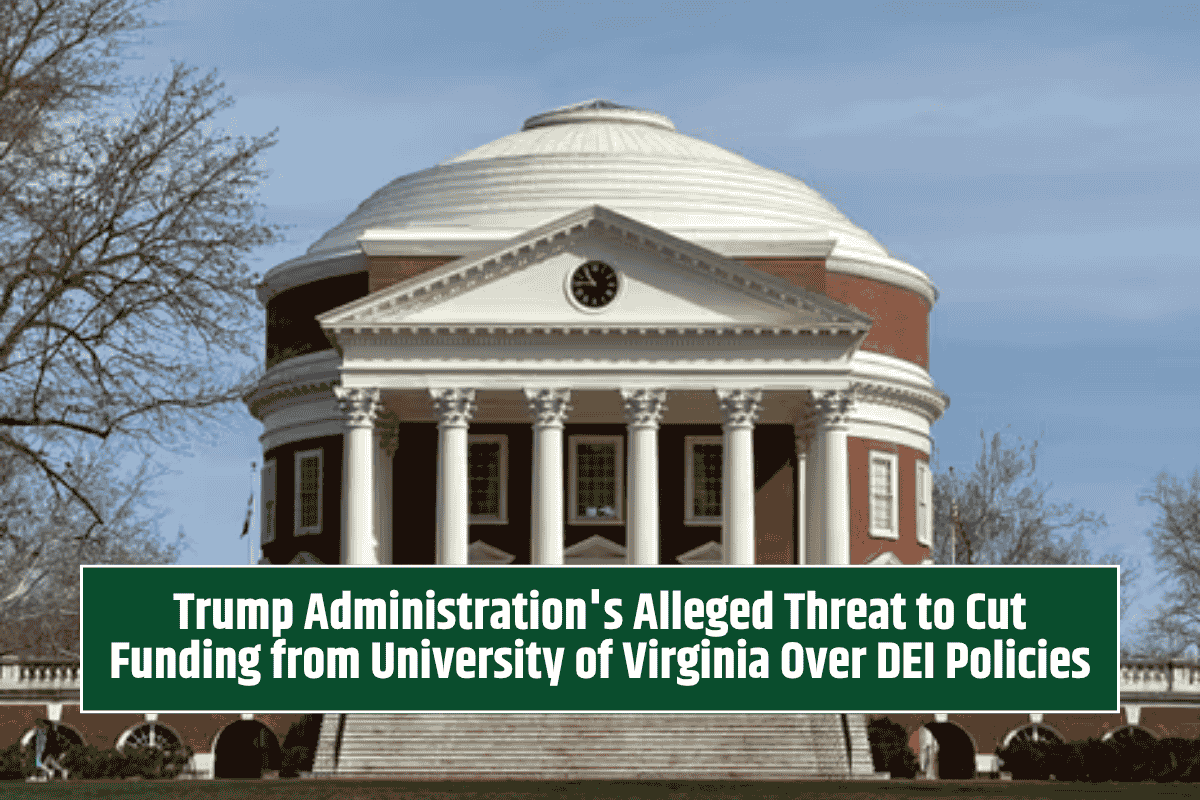The University of Virginia (UVA) faced a serious threat from the Trump administration, according to Democratic Senator Mark Warner of Virginia.
During a Sunday interview on CBS’s Face the Nation, Warner revealed that the administration sent an “explicit” notification warning of drastic funding cuts to UVA unless President Jim Ryan resigned from his position.
The cuts would impact university jobs, research funding, student financial aid, and even visas for international students.
The Pressure on UVA President Jim Ryan
Warner explained that UVA received a letter stating that if President Jim Ryan did not step down by 5 p.m. on a certain day, the university would face serious consequences, including job losses for hundreds of employees, a loss of research funding, and the withholding of student financial aid and visas.
The conflict stemmed from Ryan’s diversity, equity, and inclusion (DEI) policies, which were opposed by the Trump administration.
Ryan, known for his efforts to make UVA more diverse and encourage community service among students, was under intense pressure to resign in order to resolve an investigation launched by the Justice Department into the university’s DEI practices.
On Friday, Ryan ultimately resigned from his position, explaining in his resignation message that he could not fight the federal government alone, as doing so would risk the jobs of university staff and the university’s crucial funding.
Warner’s Criticism of the Trump Administration’s Overreach
Senator Warner called the administration’s actions “outrageous” and described the threat to UVA as an example of federal overreach in education. He emphasized that the Trump administration was attempting to dictate university policies, which could set a dangerous precedent for other institutions.
Warner warned that if such actions were allowed to continue at UVA, they could easily be applied to other universities across the nation. “They are doing damage to our flagship university,” he said, referring to UVA’s role as a leading educational institution in Virginia.
Warner also criticized the administration for trying to impose its political views on education, undermining academic freedom.
Broader Implications for U.S. Universities
This dispute between the Trump administration and UVA is part of a broader pattern of tension between the federal government and universities over DEI policies.
Warner also drew attention to Trump’s ongoing battles with Harvard University, America’s oldest university, including the proclamation to restrict foreign student visas and continued threats to cut funding over similar DEI policies.
Warner argued that such actions could harm U.S. universities by chasing away world-class talent, both domestic and international. “If we don’t have some level of academic freedom, then what kind of country are we?” he asked, suggesting that these efforts could erode the foundations of higher education in the U.S.
The events surrounding President Jim Ryan’s resignation from the University of Virginia underscore the ongoing tensions between federal influence and academic institutions.
While Ryan’s departure was framed as a necessary step to avoid financial and institutional harm, the situation raises important questions about academic freedom and the role of government in shaping university policies.
Senator Warner and others see the Trump administration’s actions as a harmful overreach that could have long-term negative effects on U.S. universities and the broader education system.






